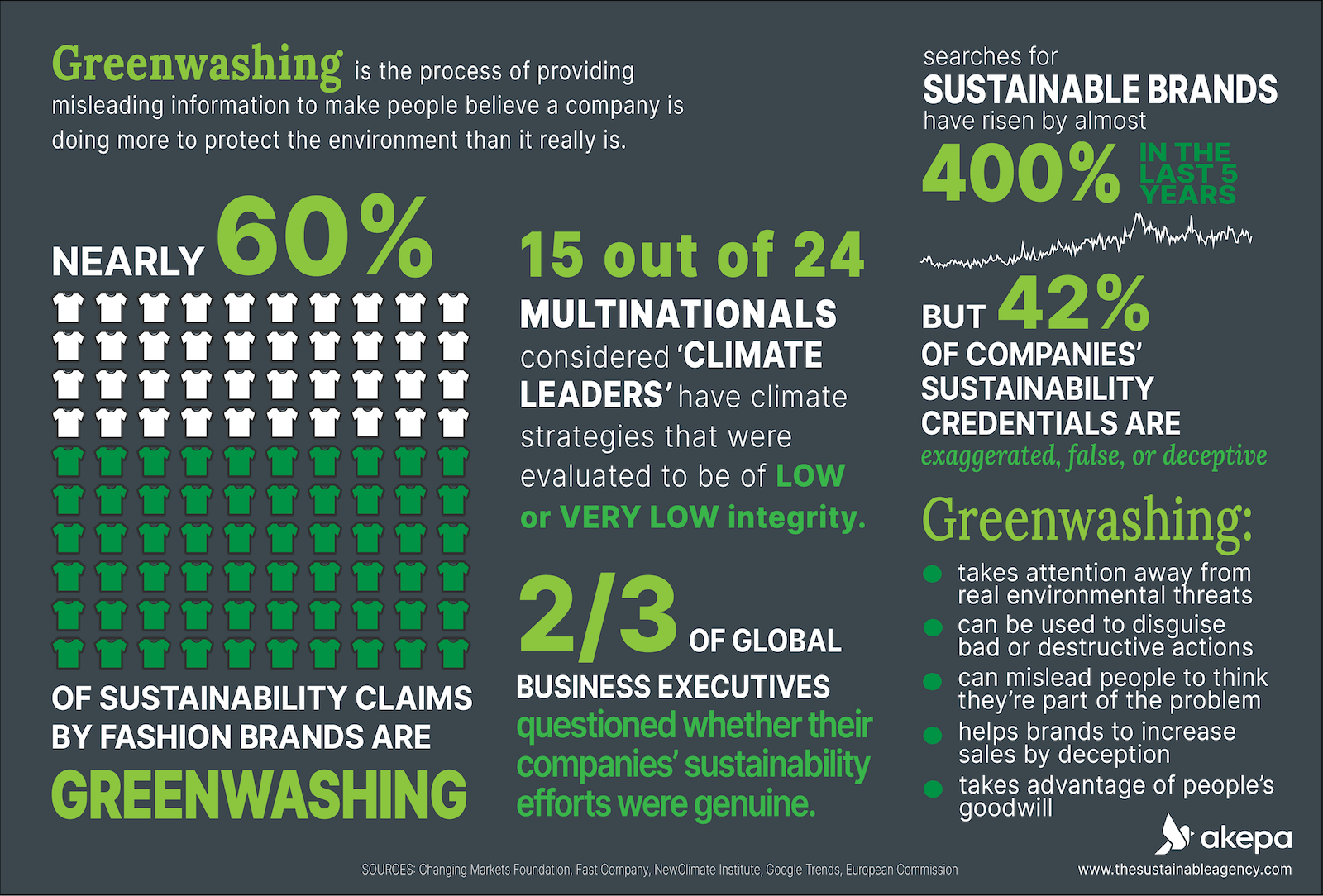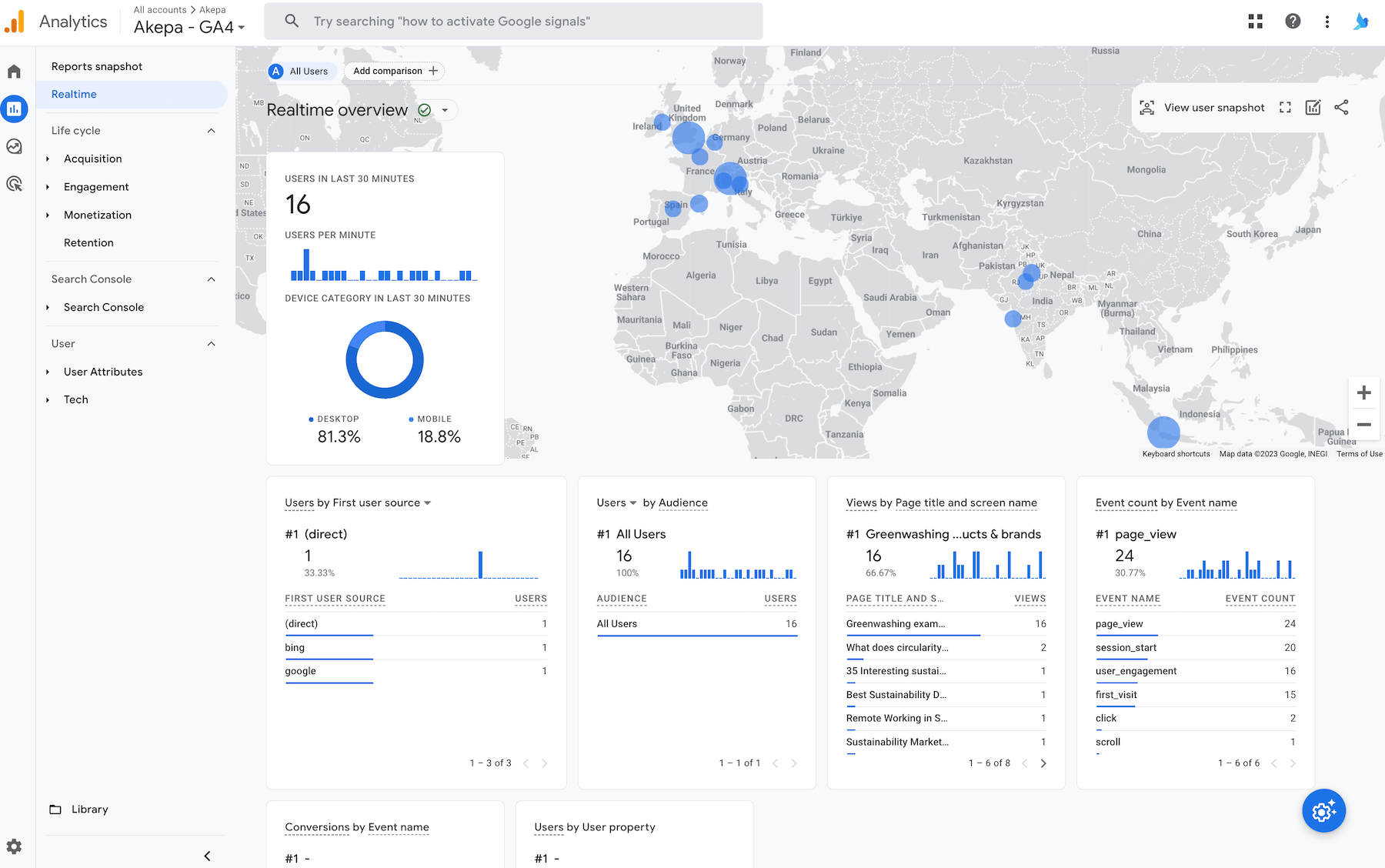Sustainability is hard enough to wrap your head around without having to communicate it like a pro. Yet, if you’re a sustainable brand, or a company aiming to be more sustainable – this is a voice you’re going to have to find.
To help you find that voice, hiring a specialist agency like Akepa could be the way forward. But what if you’d prefer to take the responsibility and retain more control?
In that case, sustainability marketing training could be the way to go. We’ll explore why it’s a viable solution to your problem and how to make that happen.
What is sustainability marketing?
First things first, let’s look at what sustainability marketing means.
Sustainability marketing is the process of communicating your authentic sustainability efforts. Note that we’ve said ‘authentic’. This is because effective sustainability marketing isn’t about misleading people to sell more, or exaggerating how eco-friendly you are. That’s known as greenwashing and a pitfall of charging ahead underprepared.
Successfully communicating sustainability, is about getting the message spot-on – and reaching the right audience at the right time. It’s about making sure that the people who’re interested in sustainable services are aware of all the good work that your brand is doing.
Here are a few ideas for what sustainability marketing might look like:
- Writing useful articles that people might find when using search engines – e.g. a post on what green hydrogen is.
- Forming an appealing Instagram feed that shows off your company’s sustainability culture.
- Running an ad campaign on social media, or in Google, that’ll help you get leads while your website gets established.
- Creating an infographic that makes an entertaining comparison in your industry, which you can promote online to raise awareness.
- Trying to get the most from generative AI to help your content creation.

Understanding how effective your efforts are towards your business’ overall goals is also indispensable. This is where using analytics tools like Google Analytics 4 comes in handy.
Sustainability marketing is not simple and sometimes overwhelming. But it’s also a conquerable task with the right guidance.
Now, let’s explore some key challenges that training could help you overcome.
Finding your unique identity
We’re talking about recognizing sustainability beyond the trend. Instead, know how your business practices can be better aligned with the environmental and/or social objectives most important to you.
It’s never a one-size-fits-all concept. You’ll need to dive deeply into your company’s unique characteristics, operations, and objectives. Pinpoint where and how you can improve your environmental footprint, implement simple yet more ethical practices, and weave sustainability into your brand DNA. Finding this identity is the first step toward driving meaningful change and marketing that makes an impact.
Being original, not boring
Navigating the complexity of sustainability communications isn’t just about avoiding greenwashing. There are other tactics to learn about too.
A few long years ago, sustainability was somewhat niche but now it’s rare for a company not to be involved in sustainability to some degree. With that in mind, you need to get creative and strategic with your efforts to stand out in a noisy crowd. It’s one thing to have the right intentions but you’ll also need to reinforce those with ingenuity.
Sustainability can also be sanctimonious and depressing if you don’t consider that you need to inspire people, not warn them. Or patronize like a stuffy professor.
There are so many ways to turn people off. A common challenge is how to make sustainability compelling, even fun. It’s marketing after all. Tell a story.
Getting strategic, with data
Another challenge is understanding how everything in the plan connects together. If you don’t have that overview then it’s hard to form a solid strategy. While this is important at the start, you’ll also need to know what’s happening along the way, as your sustainable mission unfolds.
How do you do that? Well, the key way is to understand the data behind your sustainability campaigns. There are a few recommended tools, with the main one being Google Analytics 4. You’ll need to know how to get that side setup.

Then, you’ll also need to know how to stay on track over time. You should be able to dip into the data to understand how different channels are combining to achieve the goals that you’ve set. Setting up a detailed automated data report in Looker Studio, for example, is something you could do to reduce the workload.
Sustainability marketing training can help you overcome all of these common challenges.
Benefits of remote sustainability training
Akepa offers sustainability marketing training sessions in person or remotely but we recommend taking the remote approach, unless it’s unavoidable. There are plenty of benefits of remote operations for sustainable brands, with one of the big pluses being reduced emissions.
In fact, a 2023 study from the US pinpointed that working from home can result in a 54% reduction in GHG emissions. That’s not to be sniffed at. The same benefits of remote work can also be applied to remote training. It’s a far more environmentally-friendly way of sharing and absorbing knowledge.
Then there’s the convenience. It’s now simple to get everyone together for a remote-training session. Folk in different countries? That’s not a problem. Someone can’t make it because they’re travelling or WFH? That’s alright, just jump online.
We also don’t recommend a single training session, unless you have a very specific need. It’s more likely you’ll need multiple sessions and follow-ups. In that case, a remote program can be far easier to work with.
To summarise a few of the benefits of remote sustainability marketing training:
- Lower environmental impact.
- More convenient – especially with a disparate team.
- More affordable.
- Easier to organise – especially if there are multiple sessions and follow-ups.
- Feasible, due to improvements to technology.
Is sustainability training for you?
If, for whatever reason, you don’t fancy hiring an agency, sustainability training can be a sensible step to get your marketing team up and running. Key topics to cover should be the importance of data, and how to form an impactful strategy. There are classic pitfalls like greenwashing but you should also learn about new traps like greenhushing – and transformative tools like generative AI.
What’s more, if you’re a sustainable brand then you should also consider the benefits of doing all of that remotely.
At Akepa, we tick all of those boxes, and run successful training sessions with our clients. By doing so, they become less dependent on us and the collaboration becomes more effective. If you’d like to speak to us about a tailored training program, then please get in touch on our enquiry form. We’ll get back to you ASAP.



Leave a Reply